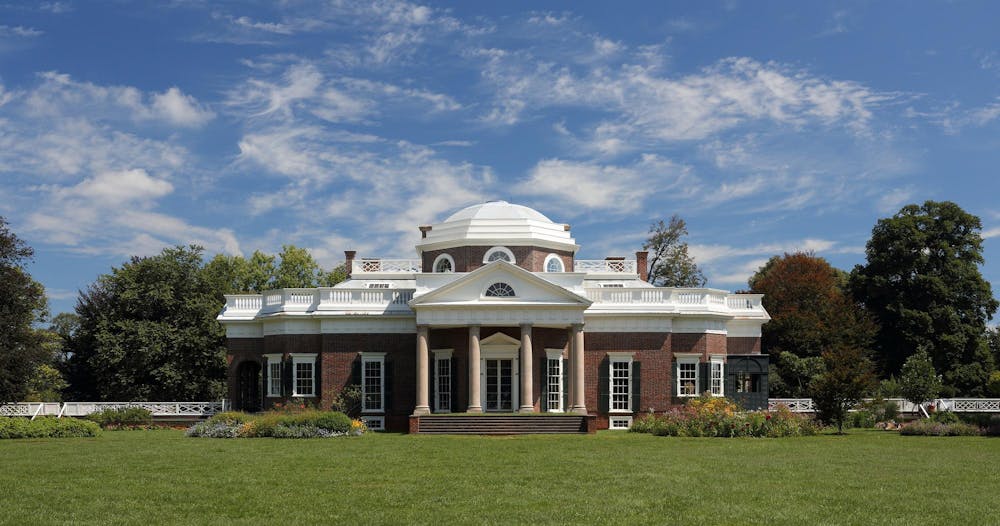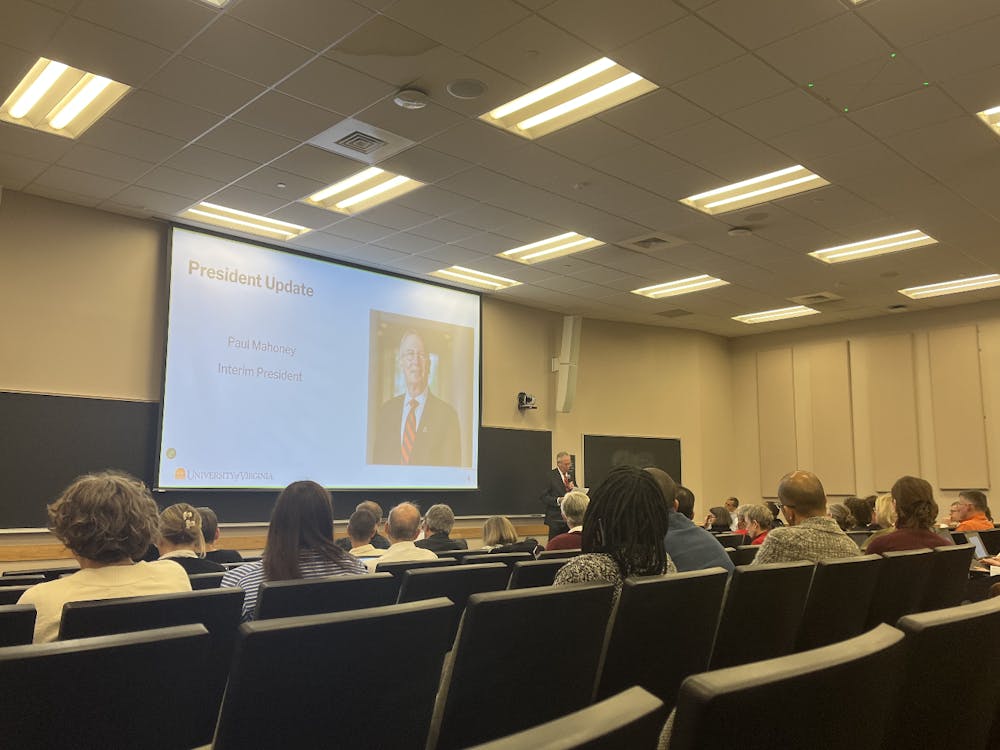Throughout the month of February, Thomas Jefferson’s Monticello has offered a series of events aiming to honor Black history. Events began Feb. 4 with a guest speaker and moderated discussion, and an upcoming event Feb. 21-22 will provide workshops and panels aimed to support attendees in tracking their own family histories.
Several events earlier in the month also incorporated Black history into year-round programming at Jefferson’s former plantation home, owned by the Thomas Jefferson Foundation — an organization dedicated to historical preservation and education. Dr. Andrew Davenport, vice president for research at Monticello, said that the organization aims to share Black history year round, although they hold additional events in February to celebrate Black History Month.
“Of course, we do Black history all year long as a foundation committed to preservation and education programming at Monticello,” Davenport said.
February was originally designated as Black History Month in 1976 to celebrate the achievements of African Americans and to recognize their role in United States history. Jefferson enslaved more than 400 people at Monticello in his lifetime and profited off the exploitation of this free labor.
While the majority of events were hosted on the Monticello grounds, the final event to celebrate Black History Month will be a Black Family History Lab, hosted Feb. 21 and 22 at the Jefferson School African American Heritage Center. The two-day event will begin with a symposium, which will offer a variety of panels and workshops aiming to support participants in tracking their family histories.
The panels aim to highlight a range of Virginia historians and community members, including Shakia Gullette Warren, executive director of the Black History Museum and Cultural Center of Virginia in Richmond. Gullette Warren will host a lunch discussion on contested commemoration, which refers to disagreements over how historical figures and events are remembered in public spaces and narratives.
Workshops will focus on oral history, genealogy and archiving, and attendees from the local community will learn how to conduct interviews with family members to best capture personal narratives, track family trees and interpret historical records.
Davenport said he hoped that the event will allow Black families to learn more about preserving their family histories in a nation where Black history is often ignored.
“[It’s] an opportunity really to learn from some leading historians in the field,” Davenport said. “And really talk about the importance of family history to the American story, particularly Black family history.”
The Family History Lab will also host an expo — the day after the symposium — focused on local organizations, during which Monticello will offer free family portraits which will be printed and mailed at no cost. Davenport said that he hopes providing these portraits will allow families to begin documenting their current lives for future generations to look back on.
“So we're not just talking about [looking back on] Black family history, but we're also [creating] Black family history at the same time,” Davenport said. “[Families] can treasure that forever, and 150 or 200 years from now, descendants will have a photo of [them].”
Events hosted earlier in the month included one held by the Monticello Department of Archaeology Feb. 15, which allowed visitors to participate in a walking tour with Monticello archaeologists and learn about recent excavations of historical artifacts on the grounds. Davenport, who attended the event with his son, said he believed the open house was beneficial to community members.
“Even in the rain, that was fairly well attended,” Davenport said. “[We also] hosted an archeology expo so people can engage with archeologists and artifacts and learn about all the inhabitants, both free and enslaved, who lived at Monticello.”
Some events were part of year-round programming, which happen on a weekly or monthly basis and educate visitors on a variety of topics, but focused on certain themes surrounding Black history during February. According to Davenport, Monticello aimed to focus on Black history even in its regularly scheduled monthly events, which included a Feb. 14 gallery talk — a monthly event which aims to educate about historical pieces at Monticello. For the February gallery talk, Monticello historians focused on a revolving top table made by John Hemmings, an enslaved carpenter, and used by Thomas Jefferson.
Another regular event series held at Monticello, the Pursuit of Knowledge series, hosted author Kerri Greenidge Feb. 4 for a conversation about her book “The Grimkes: The Legacy of Slavery in an American Family.” The Pursuit of Knowledge series takes place monthly and features a variety of guest speakers who focus on history within their careers. To celebrate Black History Month, Monticello invited Greenidge, author of several books focused on Black history, to speak at the series.
Davenport, who moderated the talk with Greenidge, said that he enjoyed learning about Greenidge’s extensive historical knowledge and her book, which focuses on the Black family members of white activists Sarah and Angelina Grimke.
“[It was] an exhilarating conversation,” Davenport said. “I moderated the conversation with her [and] we had a packed house that evening … Dr. Greenidge has specialized in these really complicated family history dynamics [throughout] her career.”
Monticello also offers tours for visitors year round, including the “From Slavery to Freedom Tour” and the “Slavery at Monticello Guided Tour.” These tours aim to share the perspective of enslaved laborers at Monticello and include walking tours of the grounds and facilitated conversations about race and the legacy of slavery.
In discussing the organization’s motivation behind Black History Month programming, Davenport noted Virginia’s local ties to Black History Month. Carter G. Woodson, a scholar from New Canton, Va., was dedicated to celebrating Black history and his work eventually led to the establishment of Black History Month.
“Given that Black History Month really originated just down the road here with Carter G. Woodson, I think it's really imperative that we amplify our work, especially in February,” Davenport said.
On its website, the organization is also offering a variety of online resources and exhibits for those interested to learn more about Black history at Monticello.







